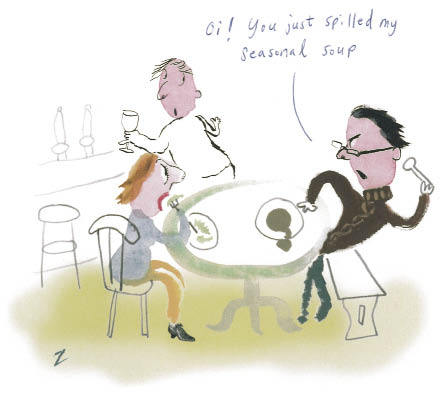Hisham Matar is a Libyan-American writer whose father, Jaballa — an opponent of Gaddafi — was kidnapped in Cairo in 1990.
Hisham Matar is a Libyan-American writer whose father, Jaballa — an opponent of Gaddafi — was kidnapped in Cairo in 1990. He is believed to be in jail in Libya; Matar campaigns from London for his release. If you already knew this, it’s probably because of the attention that came Matar’s way when he published his first novel, In the Country of Men (2005). That book, set in Tripoli in 1979, is told from the point of view of a dissident’s young son. Although the details don’t match Jaballa’s case, many readers took it as lightly fictionalised memoir.
Matar’s second novel may get a similar reception, given that it too is told from the perspective of the son of a North African dissident. It spans several decades, starting in 1960s Egypt, where Nuri lives with his father Kamal, a widower and former government minister who fled his home when the incoming ruler executed the King (the seemingly invented nation where this took place is kept vague).
On holiday they meet a woman named Mona, to whom both father and son take a shine. While Nuri has to content himself with spying on her in the shower, Kamal — who turns out to be something of a cad — wastes no time in making the 26- year-old his wife. The event foretold in the novel’s title occurs in Geneva, from where Kamal plots regime change in his homeland (or so you infer): overnight he is taken from a lover’s bed, never to be seen again.
Much of this short novel is spent ogling Mona — ‘the curve of her calf, the strong tremor of her thigh, the arc of a buttock’ and so on. In the opening pages Nuri wonders ‘how different my story would have been were [her] hands unbeautiful’. Were that the case, though, the narrative wouldn’t be able to summon an air of incestuous eroticism to occupy the void created by the themes of abduction and exile.
These subjects prove unsurprisingly tricky to write about: the former is a vacuum, not a plot development, and the latter doesn’t allow a novelist to mine the dark resources of life in a dictatorship, as In the Country of Men did, most memorably (for better or worse) with its portrayal of a raucous televised hanging. In view of these limitations, the disproportionate amount of attention given to Mona’s sexiness seldom feels like anything other than playing for time.
The prose soon abandons its early magniloquence (‘unbeautiful’) in favour of a more telegraphic style as it zips through the years after Kamal’s disappearance. While this suits the blankness of the material, it doesn’t help the sentimental climax, which stakes everything on the emotional clout of revelations concerning Nuri’s mother and his father’s Swiss mistress.
I feel a right git nitpicking like this. But maybe that’s one of the problems here. In view of the correspondence between author and narrator — however refracted — I doubt I’d have the guts to criticise the book to Matar’s face. My guess is that few editors would either.






Comments